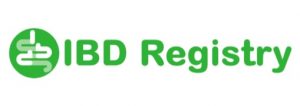The IBD Registry holds more than 80,000 healthcare records from people living with inflammatory bowel disease (IBD), which includes Crohn’s disease, ulcerative colitis and other less common forms of IBD. It provides clinicians and researchers with a unique view of IBD in the UK to support better understanding of how IBD is treated, how medications are used and how these conditions progress over time. The IBD Registry is a central part of Gut Reaction and has recently linked nearly 10,000 records to our evolving data resource to support new research into IBD and COVID-19. Here, we chat to Liz Dobson, IBD Registry CEO, about its work, future plans and partnership with Gut Reaction.
Thank you for agreeing to be interviewed Liz! Please can you tell us a bit about your background, and what brought you to the IBD Registry?
The IBD Registry was originally established in 2012, as part of the British Society of Gastroenterology (BSG), to assess standards of IBD treatment and care in NHS hospitals, and let services know where they were doing well and where improvements could be made. We still do this by collecting patient records from hospitals that choose to work with us.
I joined the Registry as its first Chief Executive Officer in 2018, when we became an independent not-for-profit organisation. I come from an information systems consultancy background, and love data. I am also an IBD patient, so I’m really excited to see the great progress that we are making in growing our database as a key tool to support improvements in treatment and care, and to help facilitate vital research into IBD. And that’s where our involvement with Gut Reaction has been transformational.
IBD is clearly an area in need of innovation. How has the UK IBD Registry contributed to this?
IBD can impact every area of a person’s life, but the cause is not yet fully understood, so research is especially valuable. We have more than 80,000 patient records that provide valuable insights to hospitals across the country, helping them to monitor how their IBD service is performing. What makes the Registry’s records so valuable to researchers is that they are longitudinal, which means that they record lots of medical events over long periods of time. For example, they can see the number of patients receiving a diagnosis, how quickly they start medication and how that medication is monitored. We also support ongoing drug safety studies to observe and report any new side effects from IBD medications approved for use.
We wanted to go further in supporting IBD studies, and our new online consent form enables people with IBD to agree to their data being included in our ethically approved database for research. We have also rebuilt our secure data management system to make data held by the IBD Registry accessible for researchers through Gut Reaction. This means we can link our data with data held by other organisations, including IBD BioResource, forming a valuable resource for IBD studies. This is absolutely the future for research in this area, and the amount of data we can make available for linkage will continue to grow.
I believe that health data is vital to ensuring ongoing improvements to IBD treatment and care, finding new ways to save time and money for the NHS, and supporting future innovations in IBD. It’s an exciting and constantly evolving area to work in.
The IBD Registry is a key partner in Gut Reaction, please can you tell us why you joined and what you hope to achieve?
Gut Reaction aims to bring together IBD health datasets and make them easy to find, link and use for research. As the guardian of one of the key IBD datasets in the UK, we very much wanted to work together with Cambridge University Hospitals and the NIHR BioResource towards this important goal. By improving the quality of health data and growing opportunities for IBD research, we can do so much to benefit the health of people with IBD.
We hope to make our data more easily available and useful for researchers – and to strengthen our partnership with IBD Bioresource to ensure that our work is complementary and supports mutual aims and opportunities.
We know that you are working hard on updating how you work with patient data, please can you explain why this is important and what it means for the IBD Community?
In order to grow our research database, we have made changes to the way we collect consent from patients. People who have Crohn’s disease, ulcerative colitis or any of the other forms of IBD can now join the IBD Registry directly online (we also have a paper-based option) and give permission for their health data to be used in different ways to help improve IBD treatment and care, including research. For the first time, we will also be able to collect health information directly from patients through online questionnaires, match this to their hospital record and link this valuable data to other datasets such as the NIHR IBD BioResource for research projects. People with IBD who join the Registry can also give permission for us to invite them to take part in future research studies that are relevant to them.
Anyone in the UK with a confirmed diagnosis of IBD will be able to sign up to join the IBD Registry and support IBD research. Right now, the form can only be used by adults, but we are working on a paediatric consent form to allow children and young people with IBD to join the Registry later in the year. We hope that by changing how patients can join the Registry we can reach an even greater number of people who would like to contribute to our work.
Your rapid response to the COVID-19 crisis was a crucial piece of work for patients with IBD, please can you tell us a bit about it and any further work in this area?
In March 2020, as the UK began to respond to COVID-19, the IBD Registry worked with the British Society of Gastroenterology to create a survey tool that allowed patients to self-identify and assess their risk from the virus. We then returned that information to hospital teams to help identify patients who were thought to be at particular risk from COVID-19. By the end of April 2021, we had received data from 40,000 patients – and we know that the tool was a great support to both people with IBD and their hospital teams during a very difficult time. We then carried out a follow-up survey with people who had used the tool and secured ethical approval for a research study based on the responses we received from almost 10,000 people with IBD. We collected data about their work and workplace, their medication, how IBD affects them, their vaccination status, their life and experiences, and their experience of healthcare.
This is now a valuable dataset supporting new studies investigating the impact of COVID-19 on people with IBD. This includes a project linking our data with information held by the NIHR IBD BioResource to investigate the risk of experiencing severe or high-impact effects from COVID-19 for people taking IBD medications that affect their immune system. We expect to publish results from this study, and others using our IBD Covid-19 dataset, later in the year.
Following the success of the COVID-19 research, do you have a particular focus for the next 6 months?
The fantastic response from people with IBD who used the COVID-19 Risk Tool really demonstrated the interest in health data and research in the IBD community. Our new research database and consent form enables greater choice for patients in how their data is used to help improve treatment and care for people with IBD. So I think our focus for the next 6 months will be in engaging more directly with patients and looking for opportunities to raise awareness of the IBD Registry. This will help us to increase the number of patients who participate in the Registry and support valuable research to improve treatment and care for people with IBD.
Thanks for your time Liz, we are delighted to be working with the UK IBD Registry on Gut Reaction. For more information, please look at ibdregistry.org.uk or follow @IBDRegistry


